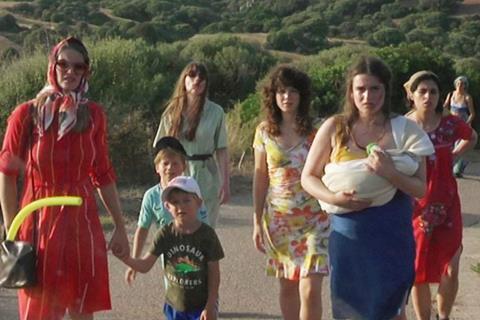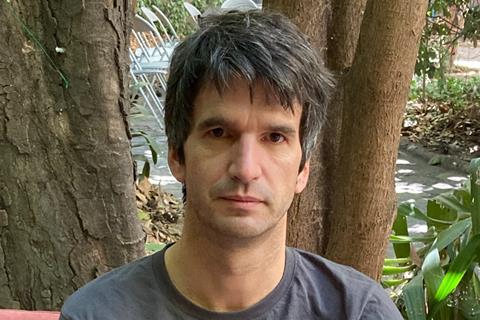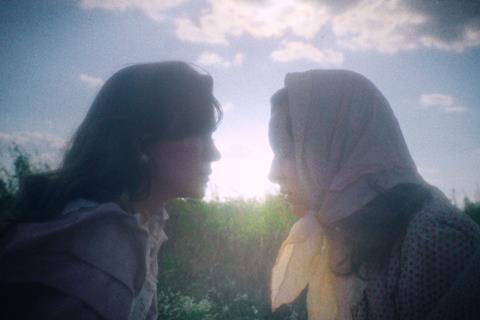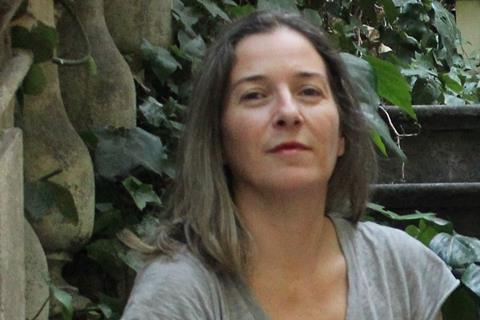
The 34th FIDMarseille international film festival and the 15th edition of FIDLab, the co-production incubator held during the festival, open today, Tuesday July 4. The selections promise to deliver on its raison d’être of celebrating discoveries and introducing innovative projects to both public audiences and industry attendees.
This year’s edition boasts a fresh Ciné + competition which comes with a €15,000 cash prize that is designed to support films for their theatrical distribution.
Cyril Neyrat, FIDMarseille international film festival artistic director, and FIDLab director and founder Fabienne Moris talk to Screen about a selection of genre-busting titles they are particularly excited about from this year’s programme.
From the festival
De Facto (Austria-Germany) International premiere
Dir: Selma Doborac
International Competition
“It is a film which is an invention of a way to tell a story,” says Neyrat of Doborac’s feature which premiered in the Berlinale Forum earlier this year. It features two separate monologues of decontextualised testimonies of executions and the perpetrators of collective crimes from the 20th Century’s history of concentration camps and genocide across the globe.
“It’s just one room and two people but the strategy is very effective and emotionally demanding for audiences who agree to be subjected to this kind of intense experience. I hope it will re-circulate quite widely.”
An Evening Song (For Three Voices) (US) World premiere
Dir: Graham Swon
International Competition, Ciné + competition
An Evening Song (For Three Voices) marks Swon’s second feature following The World is Full of Secrets in 2018. A period love story set in 1939, the film is billed as an impressionistic melodrama, built around three characters and voices that intertwine and overlap.
“We loved this film’s craftsmanship and Swon’s total devotion to build a very singular image for this film,” says Neyrat. “Swon is someone who matters in the world of independent filmmaking. It’s quite rare to see fiction films made in such a radical way. As the film’s subtitle says, it’s like a song with three voices, but it is almost only inner voices which provide dialogue for the film.”
L’Île (France) World premiere
Dir: Damien Manivel
French Competition, Ciné + competition
The third feature from internationally renowned dancer and choreographer Damien Manivel, L’Île is an experimental film combining a coming -of -age drama with dance, rehearsals and cinema. Manivel initially planned to make a fiction film telling the story of a young woman poised to leave for Quebec who spends her last evening of the summer with her friends on a beach in Brittany. But then the filmmaker decided to use footage of his film’s rehearsals in a dance studio and read-throughs.
“We loved the boldness and the novelty of this way of storytelling, the idea that you can tell a story while at the same time documenting your actors at work,” Neyrat notes. “It is a bit more radical and experimental than his previous films which is a good thing, he’s growing as a filmmaker. At 73 minutes, for me, it is the perfect length. Many things now are far too long.”
Monisme (Indonesia-Qatar) World premiere
Dir: Riar Rizaldi
International competition; First Film competition

The first feature from Indonesian director Riar Rizaldi (he previously made an experimental work Tellurian Drama that played at the BFI London Film Festival in 2021), Monisme portrays several professional actors and non-actor professionals in a dynamic of human-nature relationships in one of the most active strato-volcanoes in the world, Mount Merapi.
“It’s very daring and doesn’t follow an aesthetic or a narrative line but circles around the volcano to give an account of the issues at stake in this region in a very inventive fictional way,” says Neyrat. “It’s not so easy to find new filmmakers from Indonesia who are not using a documentary approach.”
With backing from the Hubert Bals Fund and the Doha Film Instiute, Rizaldi took the project to Qumra in March as part of the post-production feature doc programme. Monisme also received $35,000 in-kind post-production grant from Thailand’s Purin Pictures fund.
Sofia Foi (Brazil) World premiere
Dir: Pedro Geraldo
First Film competition
The debut feature from Geraldo is a portrait of a young woman called Sofia, who is forced out of her flat and so decides to kill time on campus at the University of São Paulo as a tattoo artist rather than a student, The character of Sofia was co-written by the actor who plays her, Sofia Tomic, based on her own experience.
“There is a rigour in the frames and the use of light to shape the portrait of this girl, which is very striking,” says Neyrat. “It’s a very moving film.”
Losing Faith (Germany) World premiere
Dir: Martha Mechow
International competition; First Film competition
Losing Faith begins as a coming of age portrait of a young German girl before transforming into a social political drama about a community of women in a small Sardinian town.
“It’s a political film which doesn’t express his discourse directly but through the portrayal of the ways of life of these women,” Neyrat muses. “It examines what the filmmaker and the characters call the heterosexual knot: How do you deal with the forms of life which move away from the heterosexual couple notion? The film invents a fresh narrative form and transforms itself to address a major socio-political issue of today.”

Las Cosas Indefinidas (Argentina) World premiere
Dir: Maria Aparicio
International competition; Ciné + competition
María Aparicio’s debut feature About The Clouds launched at Fid in 2022 and went on to do well on the international festival circuit including an outing at the Jeonju film festival in South Korea.
Aparicio’s second film focuses on a film editor, and her discussions with her assistant as they are editing a film about blind people.
“We asked Maria if she thought she could finish the film in time for us and she did,” says Neyrat of how much he wanted to play the film. “It’s something we like to do, to be faithful to young filmmakers we discover and to follow their path. But it’s rare a young filmmaker comes back the year after.”
Capital (Egypt-Italy-Germany) World premiere
Dir: Basma al-Sharif
Flash Competition
A short film about the urbanisation of Egypt, fascism and propaganda, Neyrat says the form of this film made it a must show. Based in Berlin, al-Sharif is a young Palestinian artist and filmmaker who works both for galleries and cinema. Capital was first shown as an installation before she prepared an alternate cinema version for festivals. The film details the impact of capitalism in Egypt, Lebanon and the Middle East and how “architectural megalomania” can destroy areas.
“It’s a very energetic film, quick in editing and change of form. It’s quite rare to have a young artists from the region to address these issues in such a bold and funny and satirical way,” notes Neyrat. “It’s not the documentary approach to the situation: It’s artistic, open and very playful.”

From FidLab
Anekumen (Spain)
Dir: Irati Gorostidi Agirretxe
After two short films “made with real cinematography skill,” according to Moris, Agirretxe is now putting together her debut feature. From the Basque Country, Agirretxe’s San Sebastian- set debut will be a continuation of her work about Basque society in the 1970s, and about the libertarian and the community ideas that shaped her parent’s life and the idea of work and militancy. “Her project shows a real progression in a young filmmaker’s ambitions and career,” says Moris.
La Nuit (UK-France)
Dir: Beatrice Gibson
La Nuit marks Gibson’s first feature film and has secured development backing from BBC Film. It details the journey of a woman of African heritage who wanders the streets of Paris after an abortion. She embarks on a series of encounters under the neon glow of karaoke bars, cinemas and clubs. Shot with a cast of artists, poets and non-professional actors, La Nuit is described as collectively written piece of auto-fiction, influenced by the writings of Kathy Acker, Bernadette Mayer and Alice Notley. “[Gibson] wants to make the process of the film to be close to the process of the thinking,” says Moris. “I like the idea of how the form and the concept can be close and work together.”
Objet A (Israel)
Dir: Ann Oren
The second feature from Berlin-based Israeli director Ann Oren, Objet A details the story of two hand surgeons who live and work together. One is a kleptomaniac who hurts her ankle and gets a walking aid. As she becomes attached to her new sensitive body part, the other finds his own object of desire. While exploring the pair’s objectophilas, a mysterious woman with unusually wild armpit hair who uses dried mushrooms to soak up her sweat begins working for them.
“Her film universe is unique,” says Moris. “It is where absurdity, fetishes, ideas of binary gender and normative sexuality intermingle with an acute sensitivity to the intimate and political issues that run through our contemporary society.”
Oren’s first feature, Piaffe won the junior jury award at Locarno 2022. “It’s easy to make the first film but sometimes, it’s more difficult to make the second one. FidLab cannot exist if this kind of director doesn’t believe in cinema. It should be able to stand in the cinema industry context and we can fight to help them find the right place.”
























No comments yet